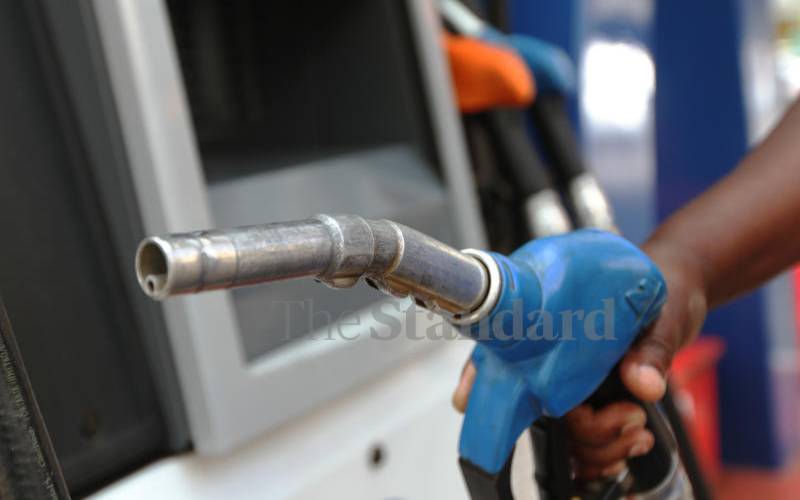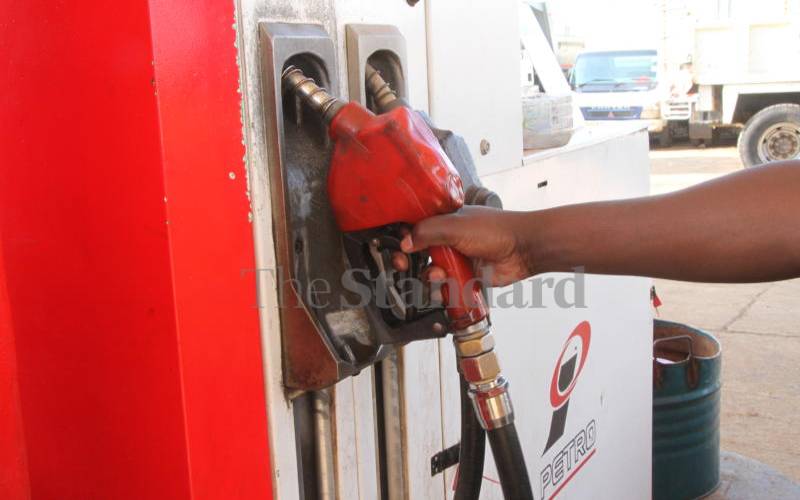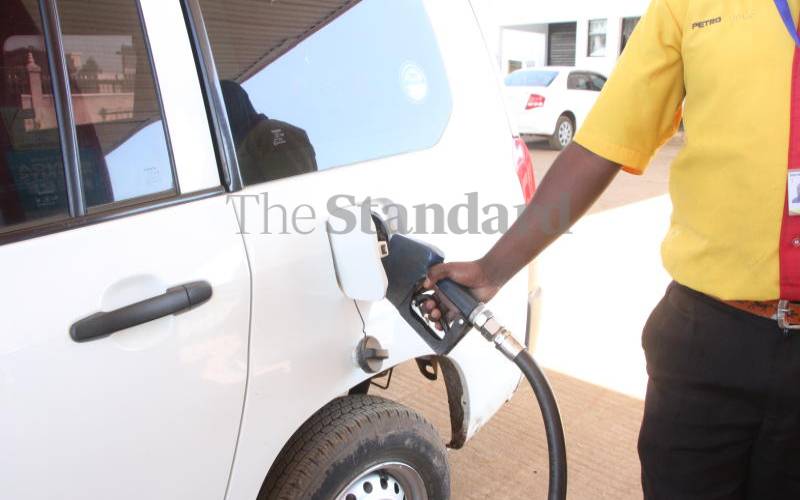
The government has retained fuel prices at the same levels as last month.
This is despite crude oil prices having gone up in March, resulting in the landed cost also going up from Sh49 per litre of super petrol in February to Sh53.99 in March. This would have meant higher prices, with projections showing prices may have jumped to over Sh127 per litre of petrol in Nairobi.
The oil marketing companies appear to have taken the hit and will have to do with lower profit margins. The money that the oil companies will take home has gone down to Sh7.95 per litre of super petrol compared to over Sh12 during the last price capping guide.
According to insiders, the government got into a deal with the oil firms to compensate them at a later date. Though details are yet to emerge, the source said there has been talks of the government possibly tapping into the Petroleum Development Levy (PDL) Fund to pay the marketers, but face the challenge of there being no mechanisms to draw from it.
Interestingly, the taxes and levies due to the government remained at the same levels. A litre of petrol attracted a total of Sh57.58 in taxes, which is the same as last month.
In its latest price capping guide, the Energy and Petroleum Regulatory Authority (Epra) retained the price of super petrol at Sh122.81 in Nairobi. Diesel will continue retailing at Sh107.66 while kerosene will cost Sh97.85. This has spared Kenyans a hike in the cost of living.
“In the period under review, the prices of super petrol, diesel and kerosene remain unchanged from the March 2021 pump prices,” said Epra in a statement, adding that this was despite higher product costs in March compared to February.
The average landed cost of imported super petrol increased 9.27 per cent while diesel increased by 4.77 per cent. Kerosene went up by 7.29 per cent.
In giving the oil marketers their margins, Epra has split this into wholesalers’ and retailers’ margins. The latter is further split into retailers’ investment and retailers’ operating margin.

Compensation plan
The source told The Standard that the retailers would get their margins and it is the wholesalers who will engage the government and seek compensation later.
In the latest price capping guide, the government may have yielded to pressure from the public. Kenyans have raised concerns about the pricing of petroleum products, particularly the seeming over taxation and pricing modalities that caters for all players in the supply chain but pays little regard to the consumer.
Taxes and levies are the single largest item charged on fuel.
Of the Sh122.81 per litre that motorists are coughing up for super petrol in Nairobi, Sh57.58 goes to the government. And while it appealed to businesses to wait as it made a populist move to calm Kenyans who are increasingly edgy, the government didn’t forgo even a shilling.
The landed cost – which is the cost of fuel when it arrives in Mombasa before taxes, oil company margins and other costs are loaded – is Sh53.99 per litre of super petrol.
The taxation might get worse, with the government currently considering whether to implement some of the proposals by the International Monetary Fund (IMF).
IMF advised the government to standardise VAT on petroleum products, which would double the VAT rate to 16 per cent from the current eight per cent.
If the government yields to pressure by IMF to align “fuel VAT to the standard rate”, it will be the second time that it has increased taxes on fuel in under a year.
Last year, it increased the petroleum development levy to Sh5.40 from 40 cents per litre of super petrol and diesel, which irked Kenyans as it saw them fail to enjoy the major drop in crude oil prices when it sunk to $17 (Sh1,815) on average in April following a drop in demand as governments globally put in place measures to control the spread of coronavirus.

In the regulations increasing the levy to Sh5.40, Petroleum Cabinet Secretary John Munyes said the money collected into the PDL Fund would be used to stabilise prices of fuel.
The ministry would later clarify that the money would be used to subsidise diesel prices and even only after the cost of crude oil went past $50 (Sh5,340) per barrel.
The per-barrel cost of crude has already breached this mark since early February.
More recently, the Petroleum ministry has said it cannot draw from the fund because there are no regulations in place to enable it do so. It has said it is working on draft regulations.
The pricing formula used by the energy industry regulator to determine the maximum prices the oil marketers can charge is now coming under scrutiny for failure to cushion consumers. This is even as it guarantees handsome returns to the different players along the petroleum supply chain as well as the taxman.
At the onset of implementing fuel price caps back in 2010, the government had said a key objective was consumer protection.
At the time, it had argued, oil marketers were usually quick to adjust the cost of fuel upwards when crude prices went up but reluctant to bring it down when crude oil prices came down.
The Kenya Civil Society on Platform on Oil and Gas (KCSPOG) said it has been tracking fluctuations in pump prices and has flagged the issue of increasing taxation, noting specifically that the contribution of taxation to the retail price of petrol has gone up by almost 10 per cent bringing it to about 50 per cent for some petroleum products.
“The pricing formula in its current format has been able to maintain an almost predictable stream of revenue for government and oil marketing companies but has not done well in protecting consumer,” said Charles Wanguhu, coordinator KCSPOG.
He added that the proposed regulations should have been embedded with ways in which money from the PDL Fund could cushion consumers.
 The Standard Group Plc is a multi-media organization with investments in media
platforms spanning newspaper print operations, television, radio broadcasting,
digital and online services. The Standard Group is recognized as a leading
multi-media house in Kenya with a key influence in matters of national and
international interest.
The Standard Group Plc is a multi-media organization with investments in media
platforms spanning newspaper print operations, television, radio broadcasting,
digital and online services. The Standard Group is recognized as a leading
multi-media house in Kenya with a key influence in matters of national and
international interest.
 The Standard Group Plc is a multi-media organization with investments in media
platforms spanning newspaper print operations, television, radio broadcasting,
digital and online services. The Standard Group is recognized as a leading
multi-media house in Kenya with a key influence in matters of national and
international interest.
The Standard Group Plc is a multi-media organization with investments in media
platforms spanning newspaper print operations, television, radio broadcasting,
digital and online services. The Standard Group is recognized as a leading
multi-media house in Kenya with a key influence in matters of national and
international interest.












